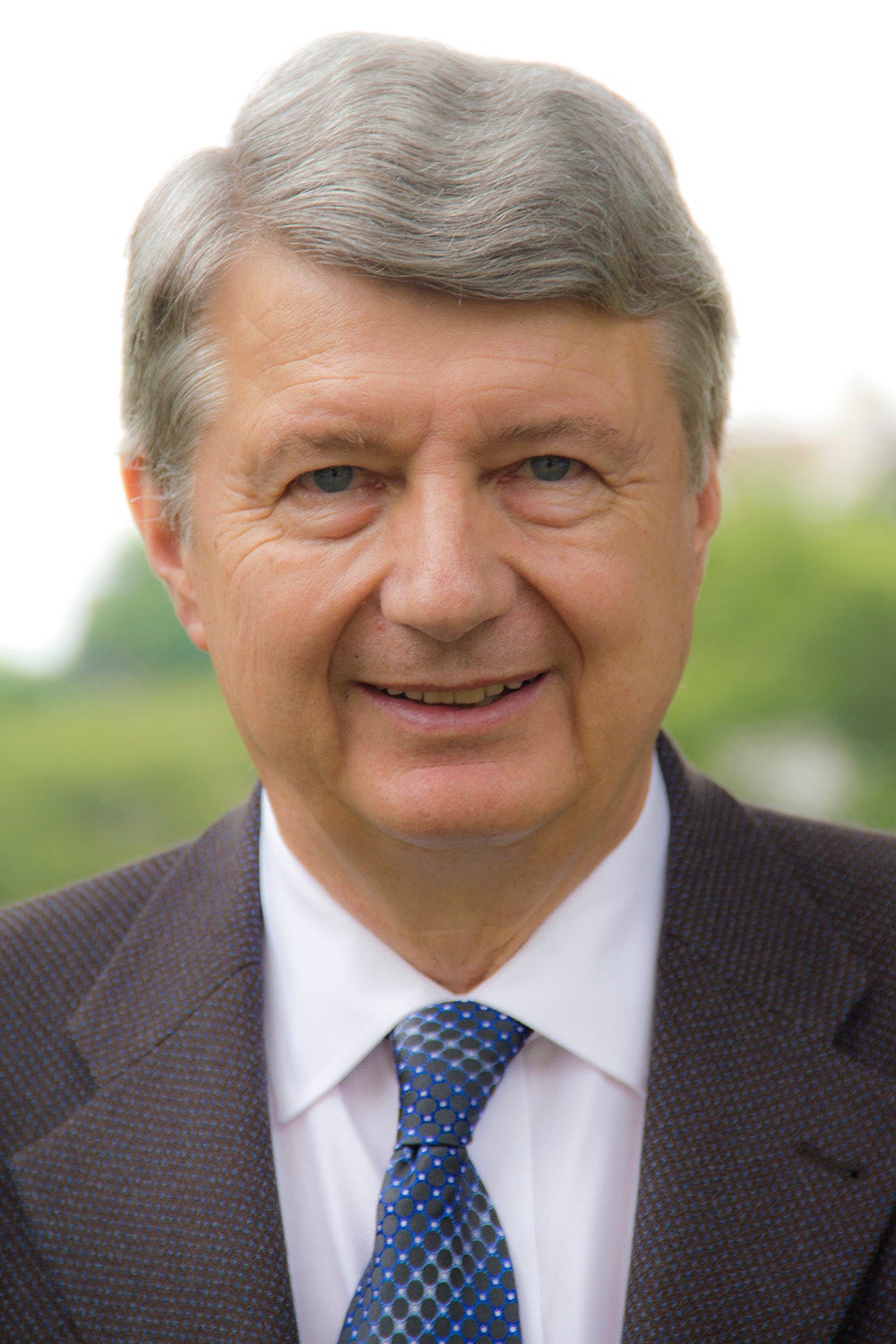Political scientist Bruce Cain wins Stanford Roland Volunteer Service Prize
Bruce Cain has won the Miriam Aaron Roland Volunteer Service Prize, which recognizes Stanford faculty who engage students in integrating academic scholarship with significant and meaningful volunteer service to society.
Political scientist Bruce Cain, the Charles Louis Ducommun Professor in Humanities and Sciences and the Eccles Family Director of the Bill Lane Center for the American West, has been named the 2019 winner of the Miriam Aaron Roland Volunteer Service Prize.

Bruce Cain (Image credit: Courtesy Bruce Cain)
Through experiential education programs, interdisciplinary teaching, Cardinal Quarter internships and research, Cain translates governance challenges into research questions that can be tackled by teams of undergraduates, graduate students and other faculty.
The prize was established in 2004 with a gift from Stanford alumna Miriam Aaron Roland and is awarded annually under the auspices of the Haas Center for Public Service.
Nuances of public issues
Cain’s nominators specifically credited him with introducing many Stanford students to the nuances of energy, water and public land management through Sophomore College courses, co-taught with faculty members Sally Benson, director of the Precourt Institute for Energy; David Freyberg, associate professor of civil and environmental engineering; and Buzz Thompson, professor of law. Students start with classes on the science or law of these topics, and Cain provides the history and politics of issues. Students then travel to visit public lands and meet with government officials and stakeholders to study conflicts firsthand.
“We visit energy facilities from nuclear facilities to coal plants, wind turbine facilities and strip-mining sites,” Cain said. “We also visit governors’ offices and talk to high-level officials about their policies on energy, land management, environment and water. These experiences open students’ eyes to the issues and possibilities for public service careers.”
Nominator Leonard Ortolano, professor of civil engineering, wrote, “Whether in the backcountry of Wyoming or the halls of the California State Capitol, Bruce engages students in exploring complex and interconnected topics such as public land management or energy-water nexus issues across international borders.”
Cain and Ortolano co-teach Environmental Governance and Climate Resilience, which introduces students to the climate-change challenges faced by local governments. The course this year used the threat of Bay Area sea-level rise as a case study and culminated in presentations for San Mateo and Santa Clara county government officials that assessed the experiences of other U.S. communities, including New York City, Boston, New Orleans and Miami.
Establishing internships
Cain has also played a role in establishing internships through the Lane Center that allow Stanford students to help policymakers develop solutions for challenges in California and the West. The program began with five interns in 2005 and has expanded to 18. One of the largest internship programs is the Stanford Energy Internships in California and the West, which Cain launched with the Precourt Institute and Stanford in Government.
As part of that Cardinal Quarter internship, undergraduates complete Energy Policy in California and the West and are then matched with a state energy agency in California, Colorado or Utah, oftentimes working with a Stanford graduate student. The Cardinal Quarter gives student the opportunity to participate in a full-time, quarter-long public service experience.
“Bruce saw the need to provide a Cardinal Quarter internship option to Stanford students interested in energy, many of whom are STEM students and who might not otherwise understand the ways that government service depends on scientific expertise and excellence,” said nominator Dian Grueneich, a Precourt energy scholar and a former commissioner on the California Public Utilities Commission.
Research and mentoring
Cain said he prioritizes hands-on experience – whether through internships or courses – to make learning more personal for students.
“Experiential learning helps to overcome a sense on the part of many students that education is just an abstraction or a hurdle to get through; it gets students to experience the world and use that as motivation for their learning,” he said.
As a result, Cain also teaches Cardinal Courses in which students apply classroom knowledge as volunteers for political campaigns, tackling issues in governance and galvanizing political participation. Through POLISCI 70: Political Engagement, for instance, students spent fall 2018 volunteering for voter engagement efforts or political campaigns as part of studying the midterm elections.
Cain also oversees student research projects on issues such as energy-efficient transportation systems, drought management and air quality in the rural West.
Nominator and sophomore Hannah Zimmerman, the youngest elected official in New York, wrote, “Students all over campus talk with great admiration and joy about Professor Cain. I do not think you would be able to find a professor on campus more dedicated to students, public service or their department.”
